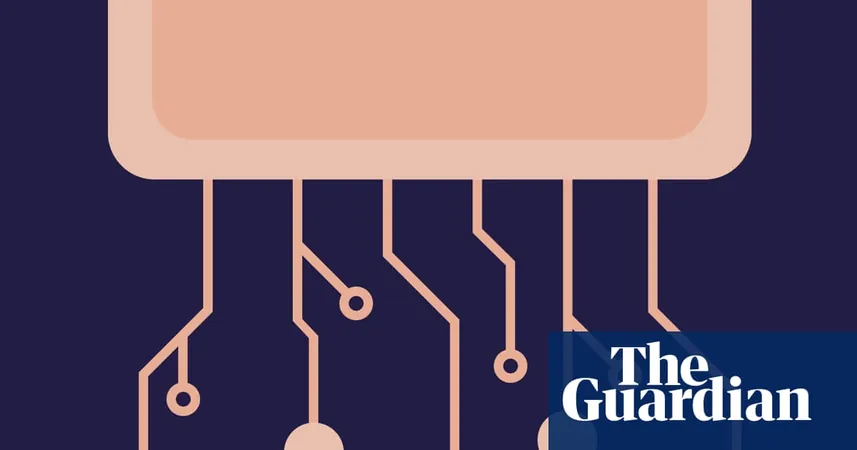
The Future of Healthcare: Why We Should Welcome AI Doctors
2025-08-31
Author: Jia
The Reality of Human Doctors
In our quest for perfect healthcare, we often hold doctors to impossible standards: tireless, infallible, always knowledgeable. But the truth is, they are human—stretched thin, battling burnout, and often facing overwhelming pressures with limited resources. Even in the best hospitals, human doctors—with their fallible, outdated minds—struggle to keep pace with the demands of modern medicine.
The Problem of Diagnostic Errors
Diagnostic errors are a major concern that can affect any of us. In England alone, studies indicate that roughly 5% of primary care visits result in misdiagnoses, endangering millions. In the U.S., these errors lead to nearly 800,000 deaths or serious injuries annually. Those with rare diseases face an even tougher challenge, as misdiagnosis is more prevalent among the one in ten people affected globally.
Humans vs. Evidence-Based Practices
Despite the scientific basis of modern medicine, the application of evidence-based treatments is alarmingly inconsistent. In fact, U.S. adults only receive proper, evidence-based options around half the time. Miscommunication is rampant, as shown by a study of over 12,000 radiology images where reviewers disagreed with the original assessments one in three times, resulting in changed treatment almost 20% of the time. And as the day wears on, doctors' performance can degrade, leading to inappropriate prescriptions and missed screenings.
The Fast-Paced World of Medical Knowledge
The challenge amplifies given the rapid pace of medical advancements. Shockingly, half of what medical students learn becomes obsolete by graduation. It can take an agonizing 17 years for new research to translate into clinical practice, while a staggering 7,000 rare diseases are documented with 250 more added each year.
AI: The Game-Changer in Diagnostics
Enter AI, a relentless data processor that operates around the clock without pause. Unlike humans, AI maintains consistency and can quickly analyze vast amounts of medical data, often outperforming human doctors in diagnosing complex cases. Remarkably, in a 2023 study, ChatGPT-4 accurately diagnosed 90% of rare conditions after just a few tests—an astonishing feat that surpasses many healthcare professionals.
Bridging the Gap in Access to Care
Access to healthcare reveals significant disparities. Those most vulnerable—those dealing with chronic illnesses, poverty, or disabilities—often miss out on necessary care. For instance, parents juggle appointments amid demanding schedules, while disabled individuals face disproportionately higher barriers to accessing medical help.
Rethinking Traditional Healthcare Models
Why do we continue to accept the outdated norm of waiting at a doctor’s office? AI has the potential to revolutionize this approach. Imagine having a doctor in your pocket, offering timely health advice via a simple app. In line with this vision, UK health officials are rolling out initiatives allowing patients to interact with AI through NHS applications. This could bring invaluable, real-time medical insights to millions.
The Digital Divide Challenge
However, AI's promise remains tethered to digital accessibility. While online access is improving, 2.5 billion people are still without internet. In the UK alone, millions lack the necessary digital skills or resources to benefit from technological advancements.
A Balanced View of AI in Medicine
Currently, much discourse centers on the flaws of AI in healthcare. While identifying potential biases and errors is essential, we must also assess AI against the backdrop of our existing healthcare system—one frequently marred by inefficiency and inaccuracies.
Final Thoughts
The introduction of AI into the medical realm could mark a transformative moment. Instead of fearing technology, let's embrace its potential to enhance patient care—a move that could ultimately save lives and improve outcomes across the board.




 Brasil (PT)
Brasil (PT)
 Canada (EN)
Canada (EN)
 Chile (ES)
Chile (ES)
 Česko (CS)
Česko (CS)
 대한민국 (KO)
대한민국 (KO)
 España (ES)
España (ES)
 France (FR)
France (FR)
 Hong Kong (EN)
Hong Kong (EN)
 Italia (IT)
Italia (IT)
 日本 (JA)
日本 (JA)
 Magyarország (HU)
Magyarország (HU)
 Norge (NO)
Norge (NO)
 Polska (PL)
Polska (PL)
 Schweiz (DE)
Schweiz (DE)
 Singapore (EN)
Singapore (EN)
 Sverige (SV)
Sverige (SV)
 Suomi (FI)
Suomi (FI)
 Türkiye (TR)
Türkiye (TR)
 الإمارات العربية المتحدة (AR)
الإمارات العربية المتحدة (AR)